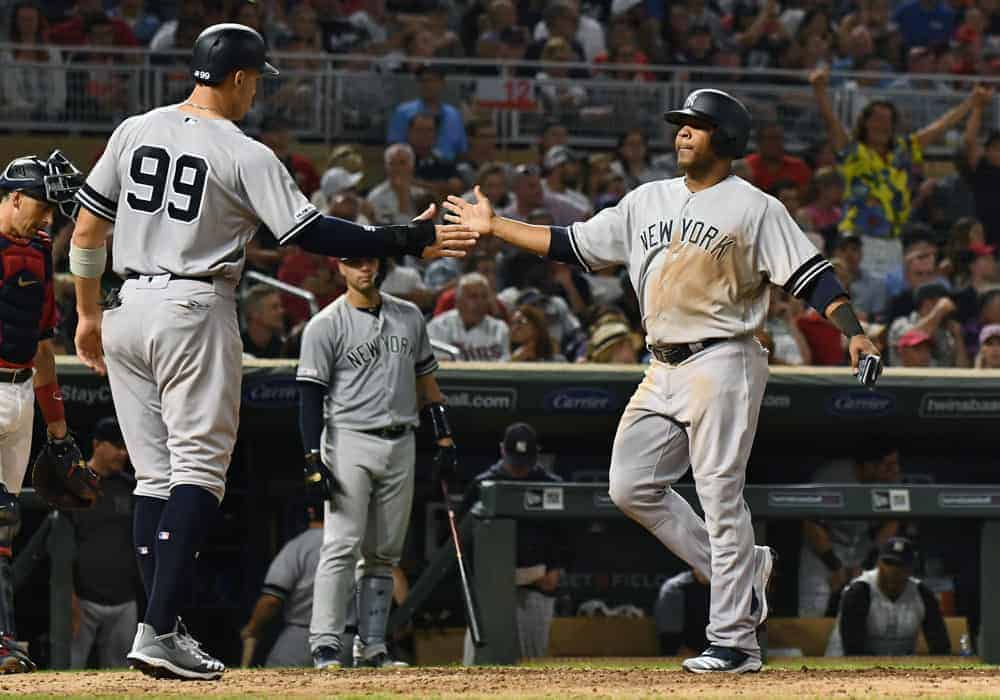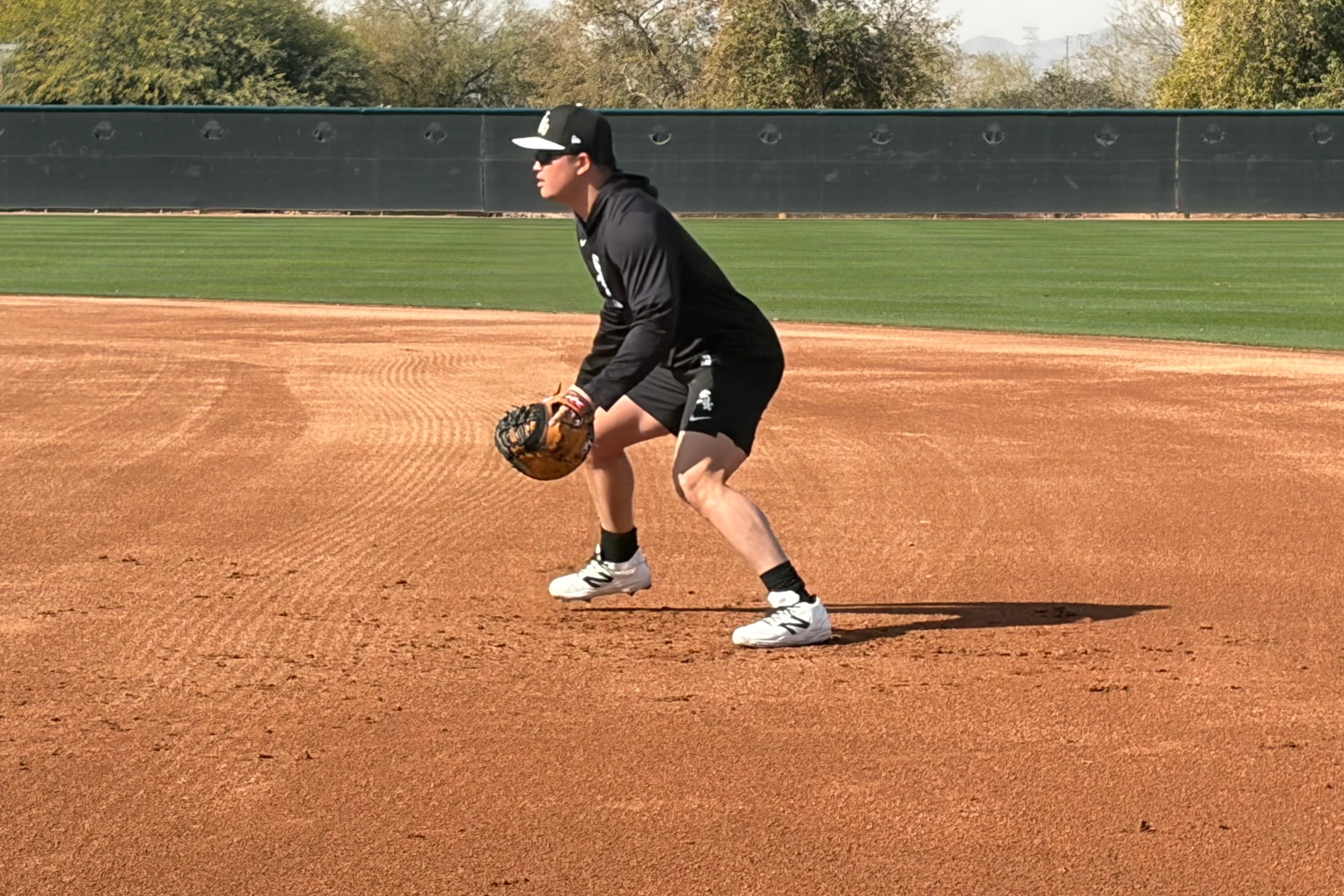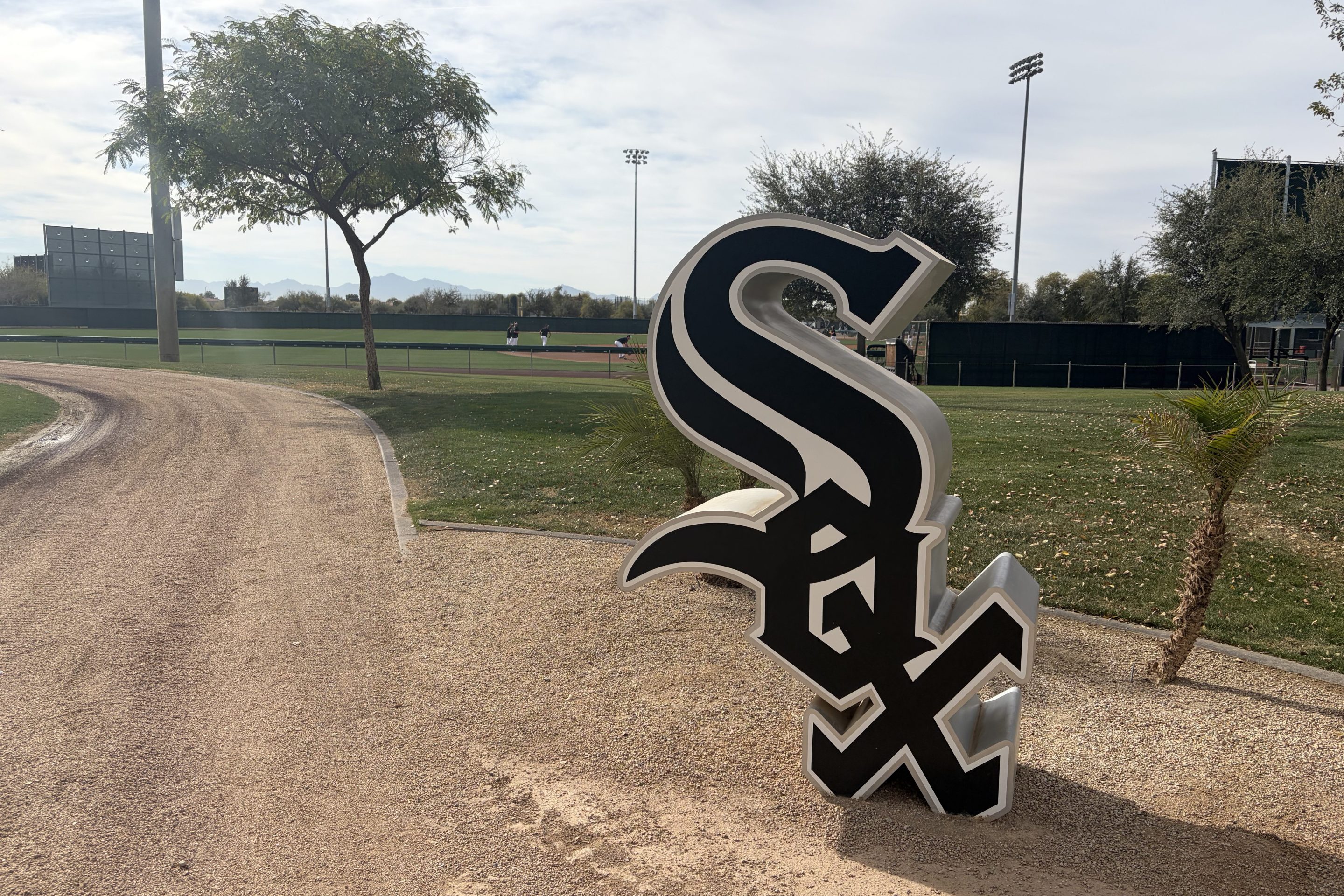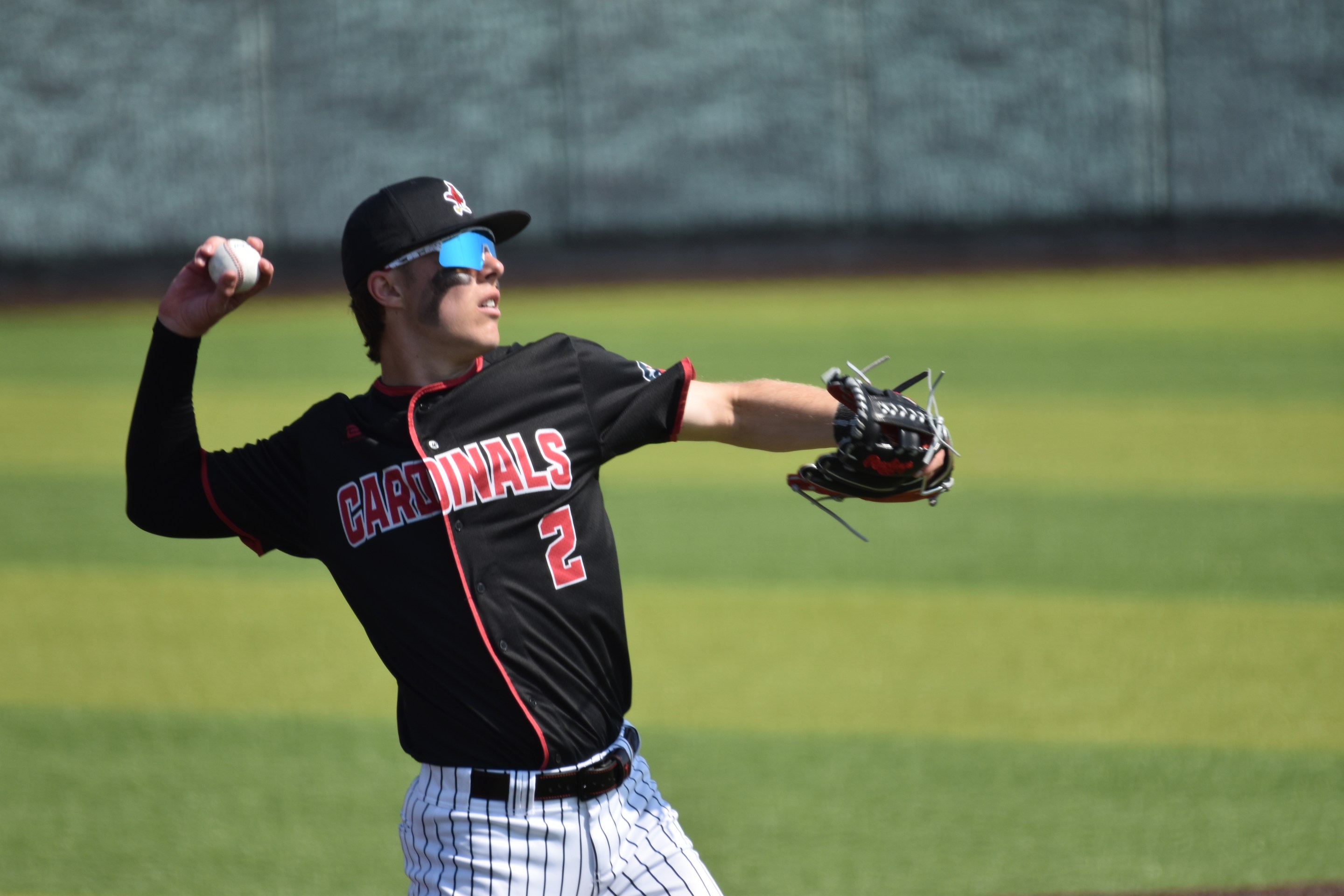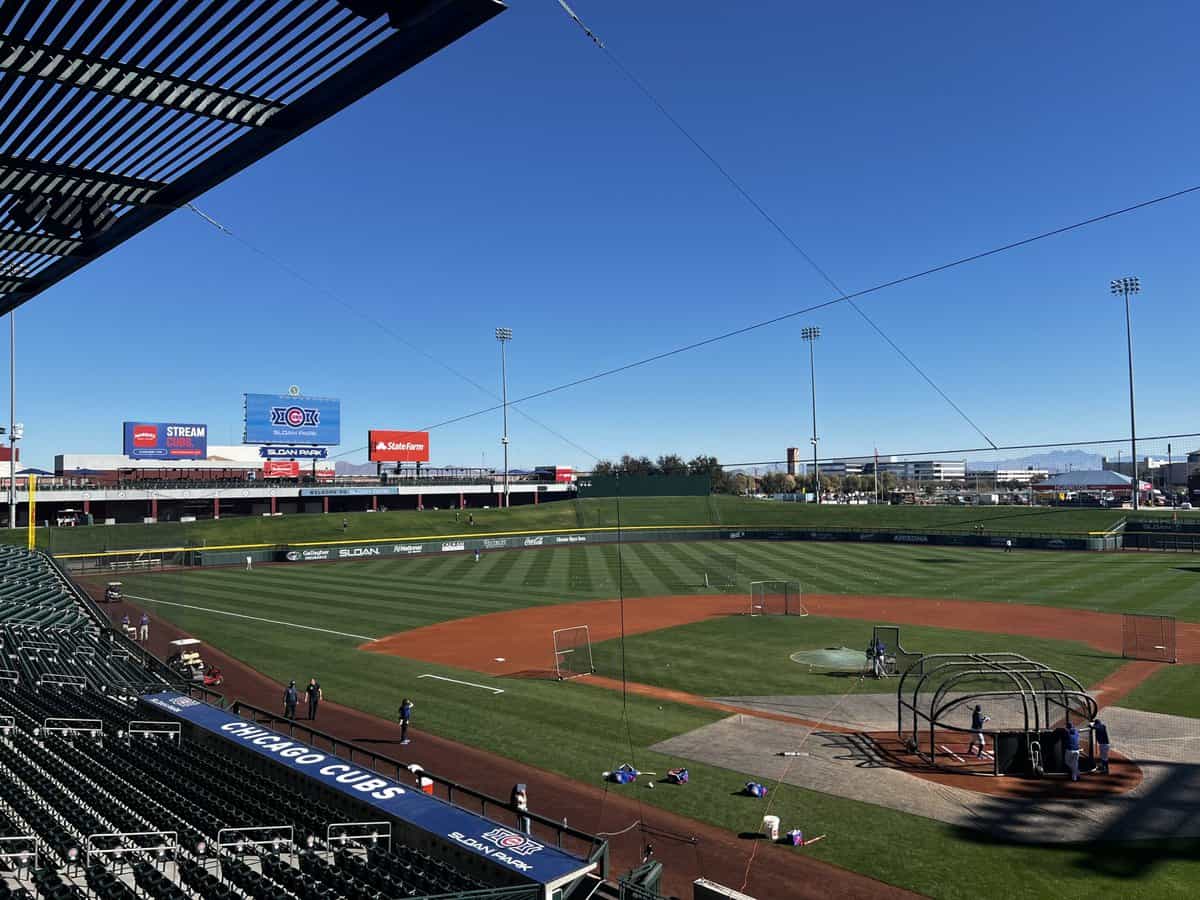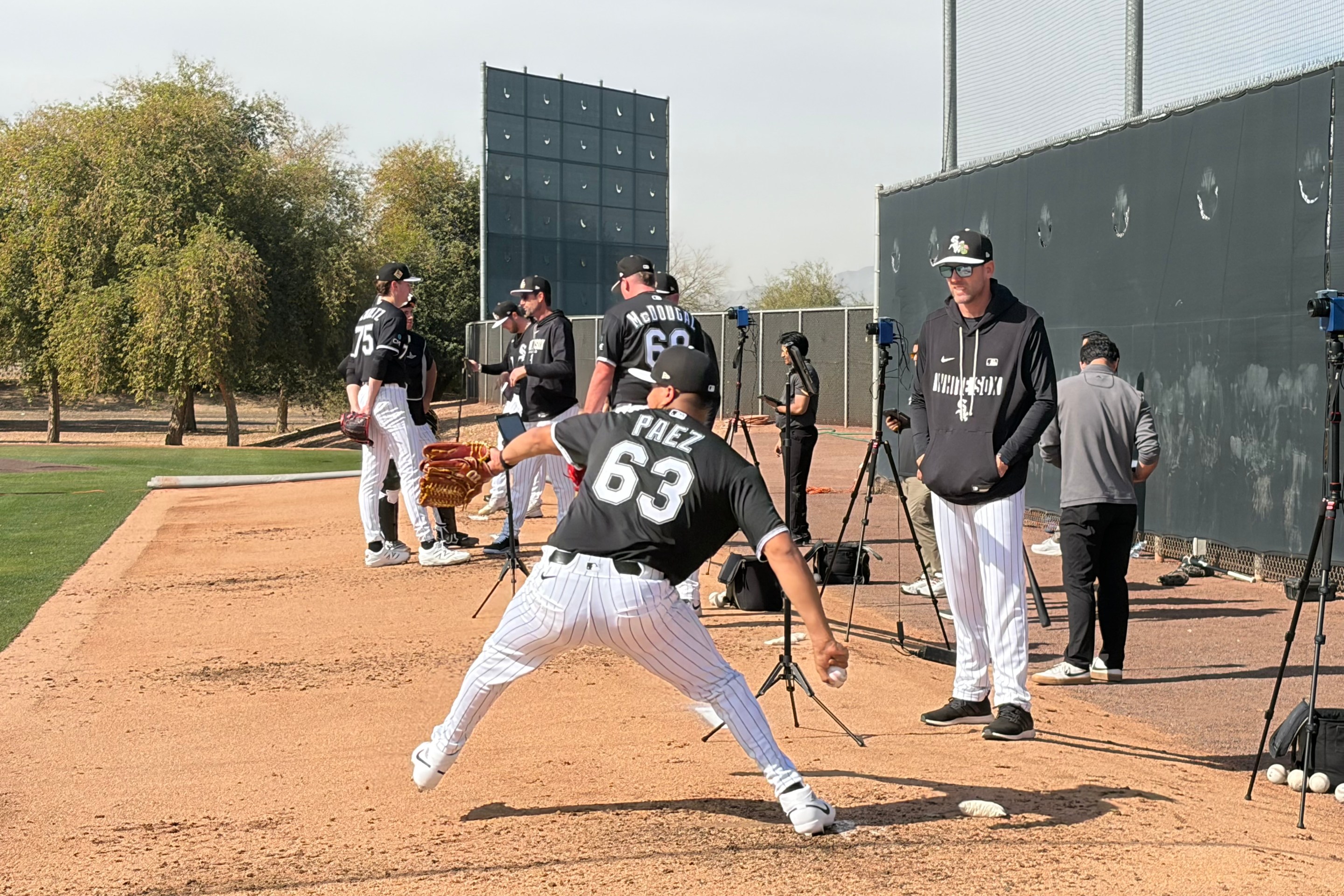About a month ago, Rick Hahn opened one avenue toward improving the White Sox roster, and NBC Sports Chicago's Vinnie Duber saw where it could go:
“We're not eager to get locked in with someone positionally who can only DH,” Hahn said. “I think having a guy who can fill that role but also go out and play a defensive position would be a net greater benefit. We're talking about generic, hypothetical players.
“If you're talking about a guy Nelson Cruz, yeah, you're OK with that guy just being a DH. If you're talking about lower caliber guy than that, then maybe you want them to add some defensive value, as well, to move them around the diamond and get other guys off their feet from time to time.”
Ideally, the White Sox would like some versatility. It’d be nice to have a Cruz-esque thumper at DH, too. One of those exists on the free-agent market in Edwin Encarnacion. On the table.
Indeed, Encarnción was so much on the table that he's now off the market. Dominican reporter Yancen Pujols broke the news Christmas evening that Encarnación is heading to the White Sox on a one-year, $12 million deal. Officially, it's an $11 million contract for 2020 with a $1 million signing bonus, followed by a $12 million club option with no buyout.
The White Sox sorely need production in that "Cruz-esque" shape, because they're coming off a year that looked like Rick Renteria he spent half the year batting his pitchers. Look at where White Sox designated hitters ranked in the league that used them:
- BA: .197 (last)
- OBP: .275 (last)
- SLG: .342 (last)
- K%: 29.6 (last)
- BsR: -7.2 (last)
- WAR: -3.5 (laaaaaaast)
(I included FanGraphs' baserunning stats because it's not like the White Sox even benefited from slappy, speedy guys who could do something on the rare occasion they reached base.)
Enter Edwin Encarnación. He brings 414 career homers to the White Sox, which is an even more impressive total considering he didn't break out until his age 29 season, when he hit 42 homers and drove in 110 runs for the Blue Jays in 2012.
Over the last eight seasons, Encarnción has never hit fewer than 32 homers, even belting 34 when limited to 109 games last year. It's a lot of power paired with a respectable strikeout rate. Fun fact: His highest single-season strikeout total is 138, and so is Yolmer Sánchez's.
All in all, Encarnación has produced late-30s excellence in the mold of the aforementioned Cruz, and now he arrives in Chicago on a similar deal. Cruz, then 38, signed a one-year, $14 million deal with the Twins before last season, and Minnesota exercised a $12 million club option afterward. Cruz made it an easy decision by hitting .311/.392/.639 with 41 homers and 108 RBIs over just 120 games.
* * * * * * * * *
While the White Sox would love for Cruz to be a perfect comparison, Encarnación throws a few more caution flags than his counterpart, even if he's a year younger. He turns 37 in a dozen days, and while he can point to a generally healthy track record, he did miss a month during the second half of 2019 with a strained oblique. To his credit, he erased any lingering concerns with a ferocious September.
Regarding his hitting profile, Encarnación's batting average has dropped in four straight seasons, and the gap between his walk and strikeout rate is wider than it used to be. He's also averaged just 18 doubles the last three seasons, which is the column that made me most nervous when first-guessing the Adam LaRoche and Yonder Alonso signings.
I'm not as anxious about that particular stat in this case because unlike LaRoche and Alonso, Encarnación is coming off eight consecutive 30-homer seasons. The other guys had an extra-base-hit problem, whereas some of Encarnación's missing doubles can be found over the fence.
It's not by accident. Encarnación is fighting his decline with more and more fly balls, and that's generally a good idea for how strong a man he is. There are signs of diminishing returns, though:
| Year | Launch angle | GB% | IFFB% | BABIP |
|---|---|---|---|---|
| 2016 | 15.7 | 38.2 | 12.3 | .270 |
| 2017 | 16.7 | 37.1 | 10.1 | .271 |
| 2018 | 18.1 | 36.0 | 11.0 | .265 |
| 2019 | 22.5 | 30.8 | 18.0 | .239 |
Todd Frazier's 2016 season is instructive here. Remember how he hit 40 homers for the White Sox, yet his production felt rather unsatisfying? His other numbers were crushed by a low BABIP (.236), and although that stat can fluctuate on luck alone, Frazier earned it thanks to a spike in his pop-up rate (18.5 percent).
Encarnación is in the same neighborhood in both of those columns. Only four players in baseball popped up the ball more frequently last year, and only five players had a lower BABIP. Perhaps he has one more adjustment in him, but it wouldn't surprise me if his last years in baseball featured admirable home-run totals surrounded by eroding production, and the homers could be jeopardized if the league de-juices the baseball.
That's no knock on Encarnación, because he should be able to age like a 37-year-old does, even if Cruz didn't. It just makes me a little apprehensive about penciling in the kind of spark he can give the White Sox. On paper, even an average DH season for Encarnación would give them a five- or six-win bump in terms of WAR, but 1) WAR doesn't translate to wins like that, and 2) even it did, White Sox DHs were so aggressively awful that they probably broke the model. Just like the absence of a foul stench doesn't guarantee a great smell, you're not necessarily going to detect real improvement from -3.5 WAR to 1.5 WAR the way you'd feel the surge from 1 to 6.
* * * * * * * * *
Now that we've accounted for the caveats and attempted to adjust expectations, let's take a second to appreciate how much Hahn has aesthetically improved the White Sox lineup and rotation. If you act as though the White Sox will avoid manipulating service time one way or another, one set of names is superior to the other without even having to get Michael Kopech involved.
| Position | 2019 | 2020 |
|---|---|---|
| Catcher | James McCann | Yasmani Grandal |
| First base | José Abreu | José Abreu |
| Second base | Yolmer Sánchez | Nick Madrigal |
| Third base | Yoan Moncada | Yoan Moncada |
| Shortstop | Tim Anderson | Tim Anderson |
| Left field | Eloy Jiménez | Eloy Jiménez |
| Center field | Leury García | Luis Robert |
| Right field | Jon Jay | Nomar Mazara |
| Designated hitter | Daniel Palka | Edwin Encarnación |
| Starting pitcher | Lucas Giolito | Lucas Giolito |
| Starting pitcher | Carlos Rodon | Dallas Keuchel |
| Starting pitcher | Reynaldo López | Reynaldo López |
| Starting pitcher | Iván Nova | Gio Gonzalez |
| Starting pitcher | Manny Bañuelos | Dylan Cease |
That accomplishes what Patrick articulated Hahn should've done with the White Sox last year -- put respectable MLB talent around their prized prospects to give their performances a better idea of their collective impact. To my eye, they're still short on gloves and on-base types, but they've really addressed their shortage in power and starting pitching, and now we'll all get a better sense of how things fit. I'm looking forward to seeing how Moncada's breakout plays when it's not being negated by atrocious production at bat-first positions, whether an increase in quality plate approaches makes extreme aggression from Anderson and Abreu more absorbable, so on and so forth.
It might not work because most of the additions are in their 30s, and Mazara's track record made him expendable in his 20s. That almost seems besides the point at the moment, because the improvement in organizational mindset is the bigger triumph. Granted, it'll continue to be concerning if the White Sox somehow continue to get saddled with worst-case scenarios from their best attempts at improvement, but as it stands now, it's mostly costing them short-term money and Steele Walker, and one of those is a renewable resource.
